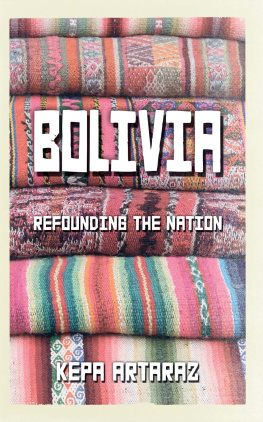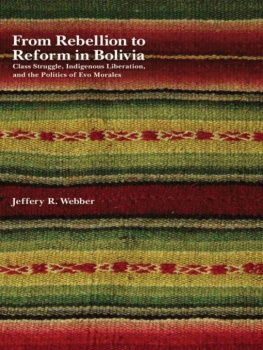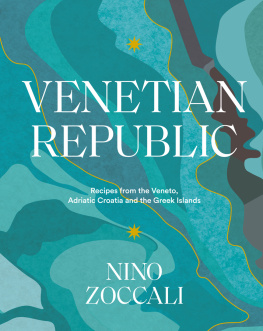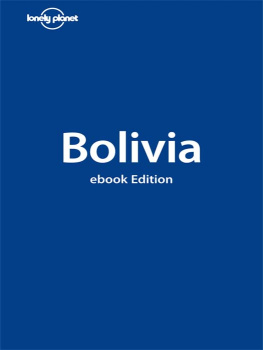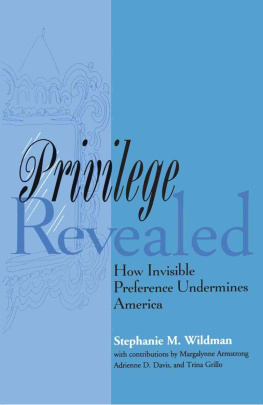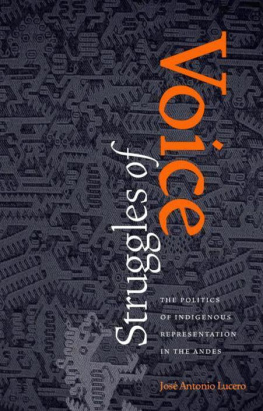
The Medicalisation of Incest and Abuse
Combining biomedical, psychological, and anthropological approaches to intergenerational incestuous violence experienced by rural indigenous (and) peasant women in the Andean region, this book raises new questions surrounding humanness and the normalisation of sexual violence. Through original ethnographical research, the author analyses Andean understandings of incest, medical positivist practices, as well as the psychiatric treatment of incestuous and gender-based violence.
The book examines the implications that psychiatric institutionalisation within the context of interethnic, gender, and class schemes has on what it means to be human. It also draws on a theoretical framework in order to understand how discourses shape, and are simultaneously problematized, by individual experiences of sexual violence and incest. Intergenerational incestuous violence against women is not necessarily an exceptional event, but can be an ordinary process, one where through the articulation of biomedical and indigenous medicine, as well as indigenous and mestizo forms of administration of political power, women as subjects can become possible.
This book will appeal to scholars and students with an interest in gender-based violence, as well as mental-health practitioners and academics in Latin American studies, anthropology, gender studies, and sociology.
Carolina Borda-Nio-Wildman is a Colombian anthropologist, political scientist, and butoh dancer, working on academic and applied research on gender, ethnicity, identity politics, human rights, performance, and humanness in contexts of violence in Latin America and Europe.
The Medicalisation of Incest and Abuse
Biomedical and Indigenous Perceptions in Rural Bolivia
Carolina Borda-Nio-Wildman
First published 2018
by Routledge
2 Park Square, Milton Park, Abingdon, Oxon OX14 4RN
and by Routledge
711 Third Avenue, New York, NY 10017
Routledge is an imprint of the Taylor & Francis Group, an informa business
2018 Carolina Borda-Nio-Wildman
The right of Carolina Borda-Nio-Wildman to be identified as author of this work has been asserted by her in accordance with sections 77 and 78 of the Copyright, Designs and Patents Act 1988.
All rights reserved. No part of this book may be reprinted or reproduced or utilised in any form or by any electronic, mechanical, or other means, now known or hereafter invented, including photocopying and recording, or in any information storage or retrieval system, without permission in writing from the publishers.
Trademark notice: Product or corporate names may be trademarks or registered trademarks, and are used only for identification and explanation without intent to infringe.
British Library Cataloguing-in-Publication Data
A catalogue record for this book is available from the British Library
Library of Congress Cataloging-in-Publication Data
Names: Borda-Nio-Wildman, Adriana Carolina, author.
Title: The medicalisation of incest and abuse: biomedical and indigenous perceptions in rural Bolivia / Adriana Carolina Borda-Nio-Wildman.
Description: 1st Edition. | New York: Routledge, 2018. | Includes bibliographical references and index.
Identifiers: LCCN 2017016237
Subjects: LCSH: Incest victimsMental healthBolivia.
Classification: LCC RC560.I53 B67 2018 | DDC 362.19892/85836000984dc23
LC record available at https://lccn.loc.gov/2017016237
ISBN: 978-1-138-62814-4 (hbk)
ISBN: 978-1-315-21084-1 (ebk)
Typeset in Times New Roman
by codeMantra
To Gumercinda and Ernestina
Contents
I would like to express my deepest gratitude to all the people I had the fortune to meet over the time I spent at Bolivias National Psychiatric Hospital, in the city of Sucre. They all were very generous in sharing their experiences and lives with me during my fieldwork, which entailed, on many occasions, the sole act of accepting my very presence. I am forever indebted to all who made this one of the most memorable years of my life.
Thanks to Gladys Zuna for introducing me to the fascinating world of the Quechua language, and for her friendship. I am also grateful to the members of staff at Bolivias National Archive in Sucre, as well as at the Judicial Archive of Padilla, for their assistance and support in conducting the archival research. Alfredo Caballero and Javier Mendozas mediation was essential to getting access to the National Psychiatric Hospital, and along with Peti Zerda, they suggested very valuable ideas on the analytical and practical aspects I might consider in my fieldwork. For this I am indebted to them.
I am grateful to Tristan Platt, for sharing the quest and passion for knowledge, and encouraging me always to push a little more, to ask one more question of others, and of myself. None of this would have been possible had not I met Andrs Guerrero, who introduced me to Tristan several years before. Andres has taught me the importance of pursuing ones own questions and has already supported me enormously in my previous research. Many thanks also to Paloma Gay y Blasco and Huon Wardle, for helping me appreciate and understand the process I embarked on several years ago in its real dimension. In this way, they encouraged me to project myself into the future.
Stella, Alejandro, Laura Alejandra, Mnica, and Michael played a major role in making this research possible. I thank them for encouraging me unerringly. Furthermore, my gratitude goes to friends and colleagues, amongst them Cristina, Gumercinda, Ingreet, Saras, Veronika, Pauline, Sandra, Dorotea, Victor, Doa Anita, Joyce, Caroline, Dayan, Ana Mara, and Nora.
Finally, I am grateful to the several institutions that financed the research this book is based on: the University of St. Andrews, Colfuturo, the Wenner-Gren Foundation, and the Royal Anthropological Institute.
At her dormitory, Victoria wraps a scarf around her head, and then she starts to pray:
I believe in God,
the Father almighty,
Creator of heaven and earth.
I believe in Jesus Christ,
His only Son, our Lord.
He was conceived by the
power of the Holy Spirit
and born because of the Lady Mary. Oh, ehm, I think I said it wrong.
From Maria he was born, dead he was buried, by her.
On the third day he rose again among the dead.
I believe in the Holy Spirit,
the holy catholic Church,
the resurrection of the dead,
Please forgive our sins.
Amen.
He was conceived by the power of the Holy Spirit and born of the Virgin Mary. He suffered under Pontius Pilate, was crucified, died, and was buried. He descended into hell. On the third day he rose again.
He ascended into heaven and is seated at the right hand of the Father. He will come again to judge the living and the dead.


